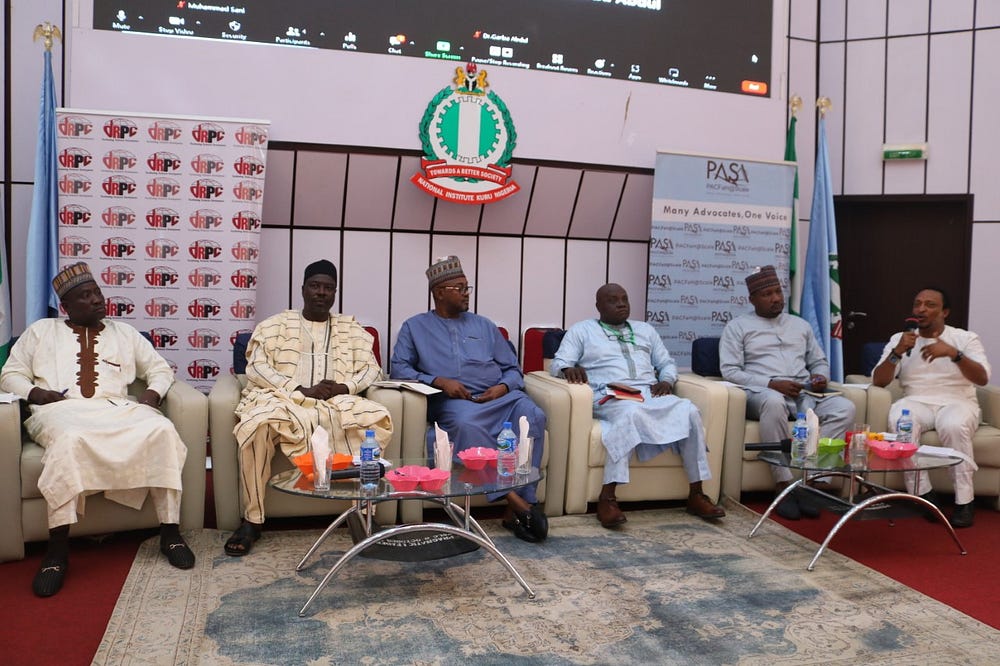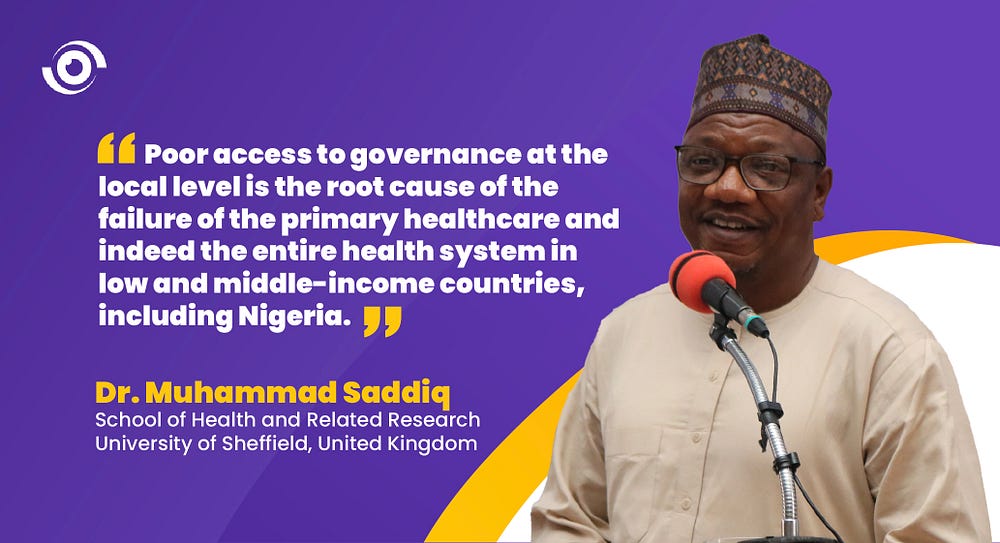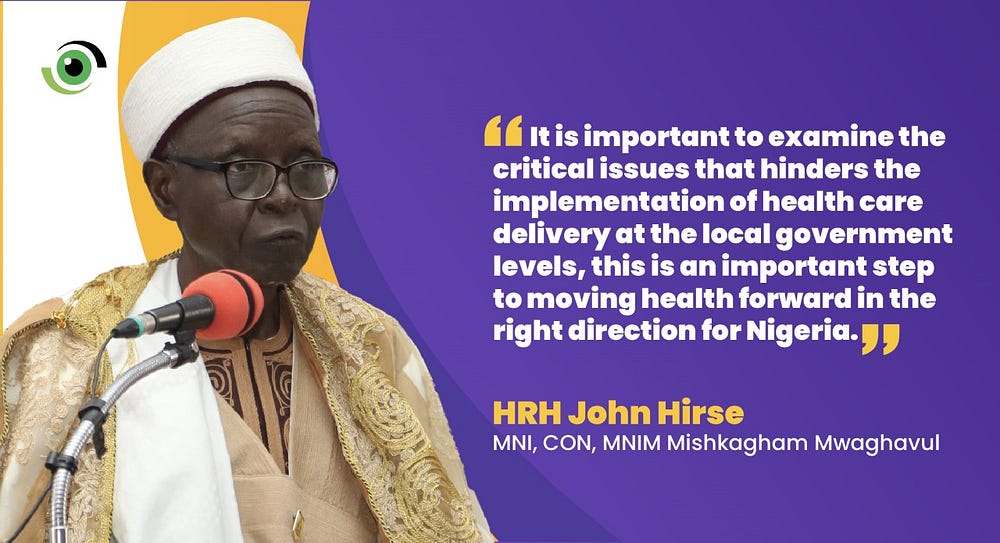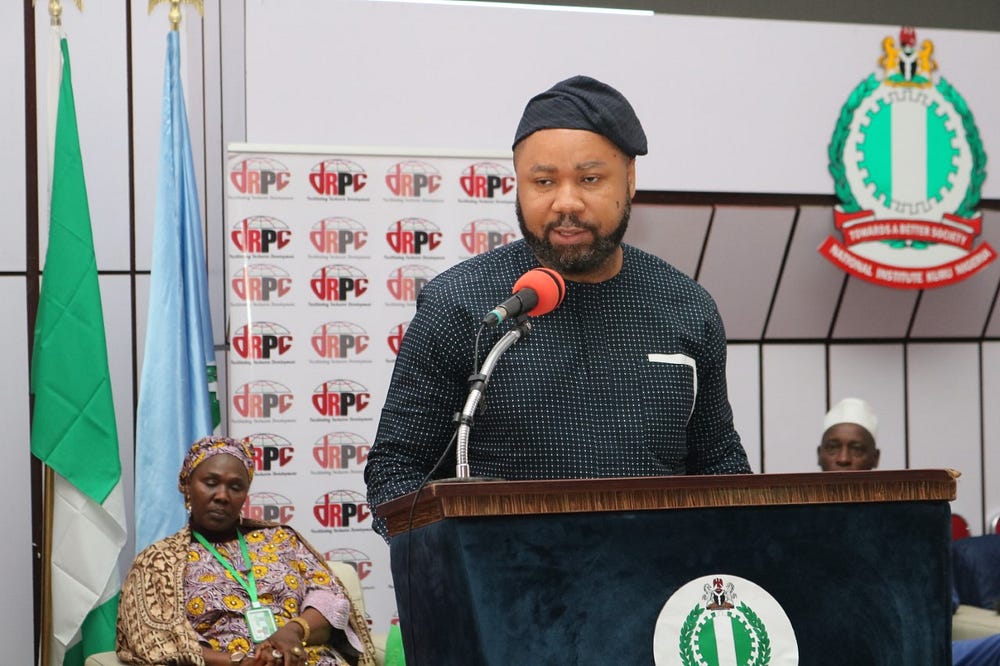By Sunday Ehigiator (Lead Writer)
The local government system created in 1976 is still the closest form of government to the grassroots. However, historically, most Primary Health Centres (PHCs) managed at the local government level, are ill equipped to provide the required quality of care. While multiple programmes have been designed to improve access to affordable and quality primary healthcare, in the “Investing in health and the future of the nation” report, the Lancet Nigeria Commission highlighted the need to ensure community and local government ownership of health service delivery.
Initiatives aimed at improving the quality of health governance at the local government level were the focus of discussion at the recently held policy dialogue on ‘Strengthening Health Governance at the Local Government Level in Nigeria’ organised by the National Institute for Policy and Strategic Studies (NIPSS) in collaboration with development Research and Project Centre (dRPC-PAS) at Kuru, Jos in Plateau State.

In his welcome address, NIPSS Director General (DG), Professor Ayo Omotayo noted that Nigeria’s health system is experiencing a severe crisis occasioned by a weak primary health system which has severely hindered progress towards achieving universal health coverage (UHC) through primary healthcare. A strong PHC system is a strong catalyst towards achieving UHC. It is therefore imperative to identify the key drivers and evaluate the challenges confronting health governance at the local government level.

The keynote speaker, a health system and management expert at the School of Health and Related Research University of Sheffield United Kingdom (UK), Dr Muhammad Saddiq said that for health systems, including PHC, to be strengthened, the issue of accountability and governance must be addressed because “poor access to governance at the local level is the root cause of the failure of the primary healthcare and indeed the entire health system in low and middle-income countries, including Nigeria.” He added that nation building efforts cannot be successful unless adequate attention is paid to the populace’s health as “efforts to improve health can be a powerful tool for capturing the goodwill of the citizens”.

Good governance is one of the building blocks of a health system and a core component of resilient health systems. According to the ‘State of Primary Health Care Service Delivery in Nigeria’ report, governance manifests through policy guidance, oversight, regulation, and accountability and helps shape a country’s health outcomes.
Local governance reforms as a solution
During the panel discussion on ‘How Local Government Reforms Can Strengthen Primary Healthcare Delivery’, speakers discussed health reforms like the ‘Primary Health Care Under One Roof (PHCUOR) policy reform, the Basic Health Care Provision Fund (BHCPF) and how they have improved health systems at the local government level. They further discussed local government autonomy as a means of improving healthcare delivery at the PHC level.

Local governments cannot effectively perform their functions without control over their social, economic and political development and according to Dr Karimatu Anka, Permanent Secretary, Zamfara State Ministry of Health they need autonomy to effectively deliver primary health care. She noted that this lack of autonomy and alignment was evident, especially during the COVID-19 pandemic. There were disruptions in service provision and some health workers were transferred from an already underserved catchment area to specialised centres.
Executive Secretary of Kano State Primary Health Care Management Board, Dr Tijanni Hussaini said that the provision of basic healthcare remains the responsibility of local governments, while the state government plays a supervisory role. “Hence local government autonomy is a huge opportunity to strengthen governance at the local level which will equally have a spiral effect on the health sector at the local level,” he added.
Health MoUs as an innovative best practice
The Health/PHC Memorandum of Understanding (MOU) signed by 10 states — Kaduna, Kano, Bauchi, Niger, Nasarawa, Gombe, Lagos, Borno, Yobe and Sokoto — was an innovative, multi-partner approach to improving integrated primary healthcare programmes through a sustainable funding approach. The second panel therefore discussed learnings and best practices from the implementation of the project in Kaduna, Gombe, Yobe and Bauchi States and explored the implications of this approach for strengthening PHC delivery systems in Nigeria.

In his submission, the Executive Secretary, Kaduna State Primary Health Care Development Agency, Dr Hamza Abubakar said that as long as out-of-pocket expenditure on health remains high, the health sector would continue to project catastrophic indices. There was therefore a need to reconcile all the laws governing primary healthcare services to make sure that health does not rely so much on the federal budget allocation.
The National President of the Association of Local Governments of Nigeria, (ALGON), Hon. Kolade David Alabi noted that there is a need for a bottom-up approach to primary healthcare reforms. Highlighting factors such as the release of allocated funds and the lack of community health insurance schemes as some of the major challenges confronting the health system at the local level, he called for complete autonomy of local governments, and a synergised collaboration between all tiers of government and other key stakeholders.
A strong PHC foundation
This dialogue on health governance at the local government level is vital as it highlights issues and proffers solutions necessary for the revitalisation of Nigeria’s PHC system. Some of the recommendations offered by panellists include:
- Increase the capacity for oversight function at the LGA levels
- Design reforms and legislation from the perspective of the clients and users of PHCs
- All programmes must be government-led and health systems strengthening pillars must always be kept in view
- Prioritise coordination and capacity building that incorporates local governments
In 2021, Nigeria Health Watch initiated a Community Health Watch project to monitor and report on access and delivery of primary health care services in rural communities. The project is currently being implemented in Niger and Kano States and enables community members to report on service delivery and their experience accessing healthcare in PHCs in their communities. The recommendations highlighted above could help address some of the access and service delivery challenges reported from these communities, and ultimately provide quality, equitable and people-centred healthcare services that can fulfil their health needs.


